Happy Monday!
Healthy nutrition is the last segment of this series on fat loss secrets, and by far, the single most important component regarding fat loss/body composition.
First off, I am a health and fitness coach a not a Dietitian/Nutritionist. Although I have the capabilities of supplying nutritional guidance within my scope of practice, I will be citing sound and functional practices from experienced nutritional professionals.
Ok, so you want to know the keys to fat loss with respect to eating right? Are you looking to have optimal body composition now and for the long-term? Would you rather follow healthy sustainable eating habits to manage your weight? Or would you prefer a calorie restrictive “non-sustainable diet” which over time you most likely will regain most of the weight lost in addition to negative impacts to your hormones/metabolism? Well, if you scour through the literature you will find that the simplest formula for enhancing your body composition is as follows: protein + complex carbs + healthy fats + water = awesomeness!
Simple right? Your probably thinking “that’s it, sure I knows that by’e” If your reading this then ask yourself the following; are you completely content with your body shape and overall health? Are you full of energy throughout the day? Would you be comfortable showing skin in the 2 months of summer here in Newfoundland? If not, your most likely not incorporating this formula on a daily basis?
Most nutritional sources recommend that you increase your daily intake of protein, fibre (complex carbs/veggies), healthy fats and water for the following reasons;
1. Quality Protein
I cannot stress the importance of protein for individuals looking to enhance their body composition. This macro-nutrient is essential in sustaining muscle during weight loss, improve muscular fitness and enhance insulin and leptin function – all of which contribute toward optimal weight management efforts over time. Only quality sources of protein should always be considered when looking to make changes to your body composition. Sources include whey/casein protein/plant-based protein powders, eggs, fish, dairy (cottage cheese, greek yogurt), seeds/nuts, lean cuts of poultry/meat and veggie protein options.
Quality foods that are high in fibre and/or protein create a high thermic effect which boosts your metabolism as your body has to use a high amount of energy (as compared to simple carbs or high fat foods) during the digestion process. The thermic effect of food is another way of saying the amount of energy burned above the resting metabolic rate due to the cost of food digestion for energy and storage.
Mark Tarnopolsky, M.D., Ph.D., who studies exercise and nutrition at McMaster University, recommends to consume between .4 and .7 grams of protein per pound of bodyweight on a daily basis for optimal results.
2. Complex Carbs
According to Brian St. Pierre, Certified Sports Nutritionist, a key component of complex carbs and protein-based foods is the regulation of the hormone insulin. Insulin becomes secreted once sugar enters the bloodstream where its main role is to transport the sugar to muscles and cells for energy processes. Daily consumption of too much sugar will cause the sugar to be converted and stored as fat and an increase resistance to insulin which can lead to type II diabetes. Since both protein and high fibre complex carbohydrates (aside from fruit) have little to no sugar, thus insulin release is controlled. Needless to say that controlling of this hormone is critical when looking to reduce body fat.
High fibre / complex carbs include foods such as green leafy and colourful veggies, sweet potatoes, legumes, whole grains (rice, pastas, oats, quinoa), hummus, fruit, etc. In terms of veggies, a simple way to up your daily intake is to include veggies in smoothies and/or start juicing with veggies. The average person’s daily veggie consumption is nowhere near where it should be; however, controlling the simple carbs and significantly increasing the complex carbs needs to take high priority for individuals looking to lose body fat.
3. Healthy Fats
In order to loss fat you need to reassess your healthy fat intake. Good fats are healthy for lowering the “unhealthy” cholesterol and reducing the risk for heart disease but also suppresses your appetite by making you feel full longer when eating meals with good fats. In general, we all need to reduce and/or eliminate the amount of saturated/trans fat we consume; think certain cuts of red meat, deep fried food, chips/cookies, most hangover food or comfort food.
From a fat loss and general health standpoint, you should look to increase the amount of good fat sources daily such as cooking with healthy oils (olive, coconut, walnut, grapeseed, etc) and consume more essential fats like omega 3s by eating fish on a weekly basis or taking a daily omega 3 supplement. I suggest adding foods like avocados, low-fat greek/kefir yogurt, and seeds/nuts to your smoothies, salads or snack options such as protein bars or yogurt parfaits.
4. Drink more water daily. Period. Water has a detoxifying effect and is essential for living and because our bodies are practically two-thirds made of water, staying properly hydrated is not only good for boosting our metabolism but functioning optimally on a daily basis. From a fat loss standpoint, a study published in the Journal of Clinical Endocrinology and Metabolism found that drinking water (approx. 17oz) increases our metabolic rate by 30 percent in healthy men and women. (Remember, high metabolism = fat burning machine). It’s been found that even mild dehydration will slow down your metabolism by as much as 3 percent. In addition, you can curb your appetite by consuming a tall glass of water approximately 20 mins prior to your meals.
Look to drink a minimum of 2-3L of water daily. Helpful hint: Always have a water bottle in sight. Out of sight, out of mind.
5. Nutrient Timing (optional)
If your serious about making significant changes to your body composition and is looking for a more advance diet protocol then I recommend you read up on nutrient timing. The concept is quite simple but implementing and sticking with it can be challenging. Understanding how and when best to include certain macro-nutrients (protein/carbs/fat) at various times of the day (morning, post-workout, evening) will optimize and speed up your results. I could go in-depth here but to keep you from finishing this article tomorrow, I found a great article on the topic with accompanying recipes which can be found here .
One final strategy when it comes to nutrition is all about food prep. You should take a few hours on Sunday and cook most of your meals for that week and have your veggies and snack options all prepared in separate containers and stored in the fridge. Remember, if you fail to plan then you plan to fail.
Other fat loss strategies can include intermittent fasting and supplementation both of which I will not divulge into for the purpose of this article.
So there you have it, my top 3 “fool-proof” fat loss secrets which MUST be implemented in order for you to not only lose your desired weight but also to keep the weight off. My philosophy is to look sexy and stay healthy.
As always, I encourage you to add any comments or feel free to msg me if you have any specific questions about this topic.
Until next time, stay strong!
Oz

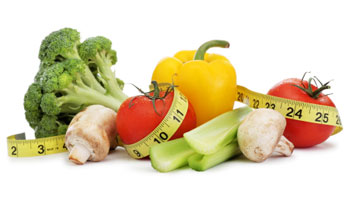
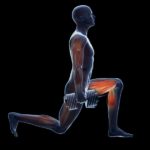
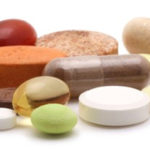
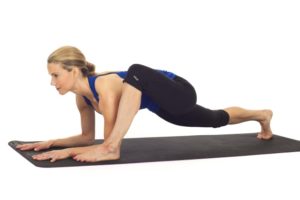
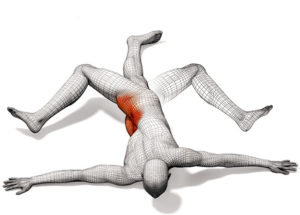

1 Comment
I do not even know the way I ended up right here,
however I assumed this post was once good. I do not
recognise who you might be however definitely you are going to a famous blogger
if you happen to aren’t already. Cheers!
Comments are closed for this article!